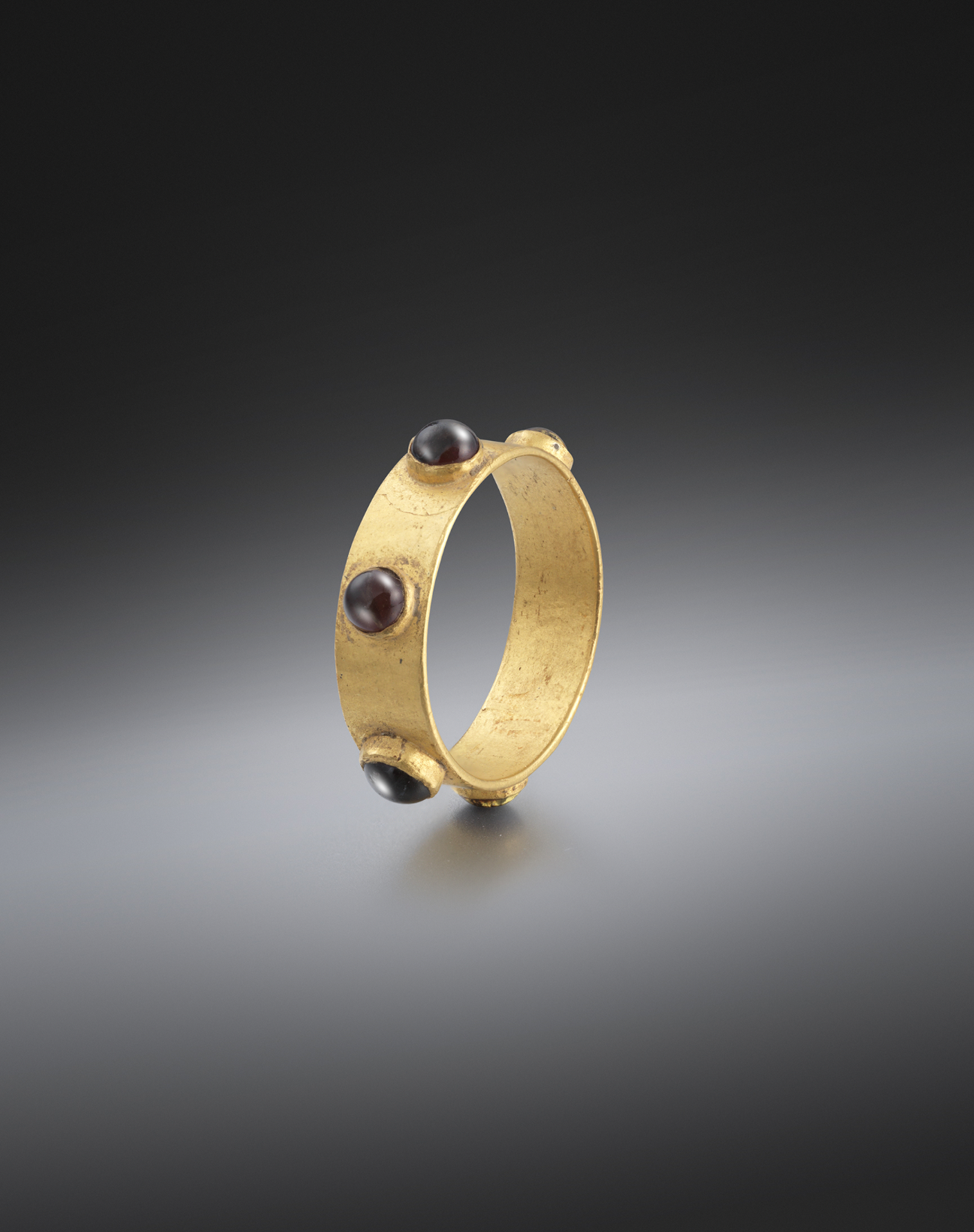Byzantine gold and garnet ring
Byzantine, 4th-6th century AD
Diameter of band: 2 cm. Ring size: N
Provenance: Sold Gorny & Mosch, Auction 150, 11 July 2006, lot 188; Property of a Private Foundation; UK Private Collection
The flat gold band decorated with six cabuchon garnets, each within a circular gold cell. The fashion for setting gems in cells like this begins in the third century AD and becomes increasingly popular until the sixth or seventh century. Several examples of this type are known, set either with garnets or with emeralds.
Literature: For discussion of the type and parallels, see J. Spier, Byzantium and the West: Jewelry in the First Millennium, London, 2012, pp. 62-65.
Enquire
Byzantine, 4th-6th century AD
Diameter of band: 2 cm. Ring size: N
Provenance: Sold Gorny & Mosch, Auction 150, 11 July 2006, lot 188; Property of a Private Foundation; UK Private Collection
The flat gold band decorated with six cabuchon garnets, each within a circular gold cell. The fashion for setting gems in cells like this begins in the third century AD and becomes increasingly popular until the sixth or seventh century. Several examples of this type are known, set either with garnets or with emeralds.
Literature: For discussion of the type and parallels, see J. Spier, Byzantium and the West: Jewelry in the First Millennium, London, 2012, pp. 62-65.
Enquire
Byzantine, 4th-6th century AD
Diameter of band: 2 cm. Ring size: N
Provenance: Sold Gorny & Mosch, Auction 150, 11 July 2006, lot 188; Property of a Private Foundation; UK Private Collection
The flat gold band decorated with six cabuchon garnets, each within a circular gold cell. The fashion for setting gems in cells like this begins in the third century AD and becomes increasingly popular until the sixth or seventh century. Several examples of this type are known, set either with garnets or with emeralds.
Literature: For discussion of the type and parallels, see J. Spier, Byzantium and the West: Jewelry in the First Millennium, London, 2012, pp. 62-65.

